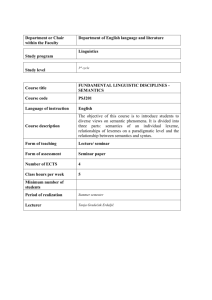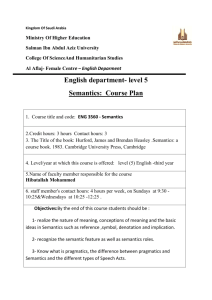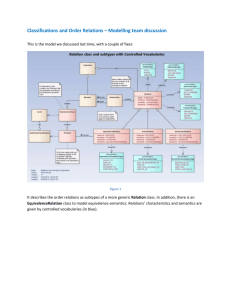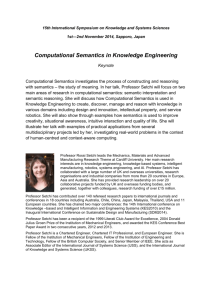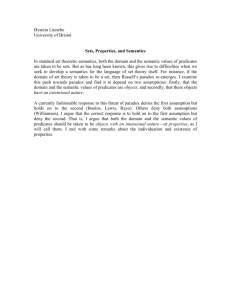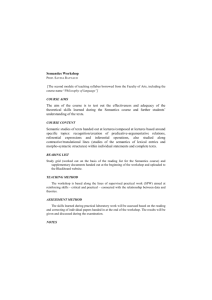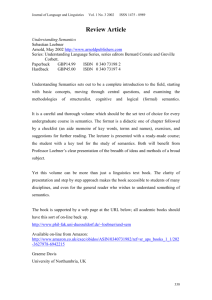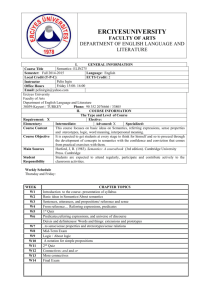Semantics AN5004MA Autumn 2013 Time: Wednesday 12.00
advertisement
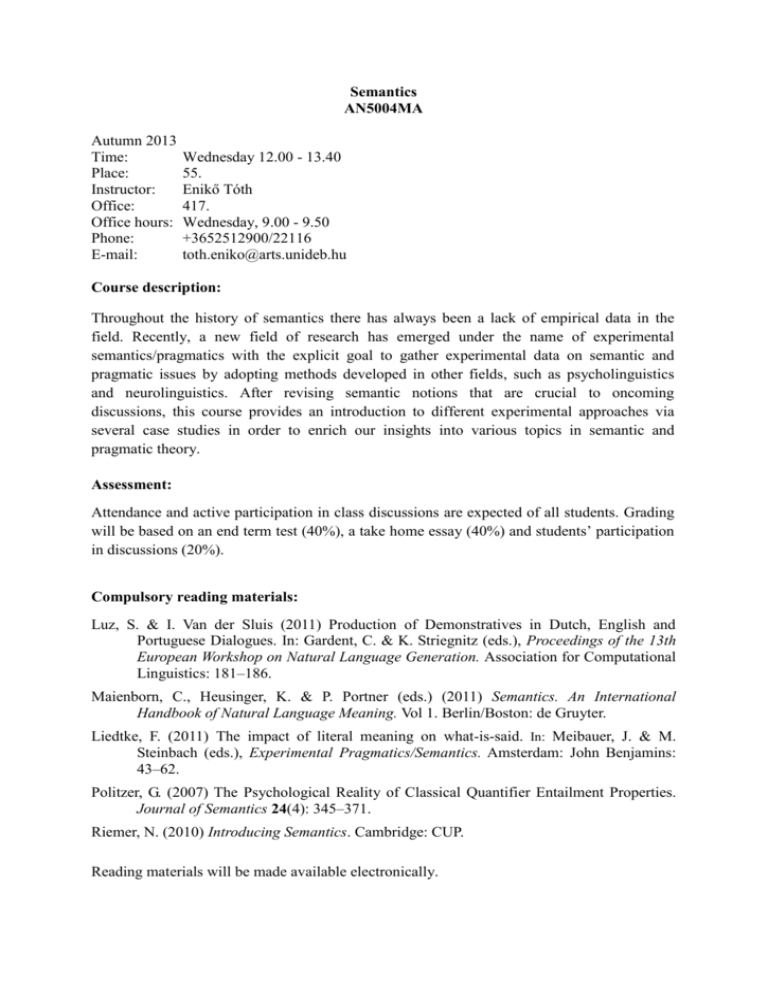
Semantics AN5004MA Autumn 2013 Time: Place: Instructor: Office: Office hours: Phone: E-mail: Wednesday 12.00 - 13.40 55. Enikő Tóth 417. Wednesday, 9.00 - 9.50 +3652512900/22116 toth.eniko@arts.unideb.hu Course description: Throughout the history of semantics there has always been a lack of empirical data in the field. Recently, a new field of research has emerged under the name of experimental semantics/pragmatics with the explicit goal to gather experimental data on semantic and pragmatic issues by adopting methods developed in other fields, such as psycholinguistics and neurolinguistics. After revising semantic notions that are crucial to oncoming discussions, this course provides an introduction to different experimental approaches via several case studies in order to enrich our insights into various topics in semantic and pragmatic theory. Assessment: Attendance and active participation in class discussions are expected of all students. Grading will be based on an end term test (40%), a take home essay (40%) and students’ participation in discussions (20%). Compulsory reading materials: Luz, S. & I. Van der Sluis (2011) Production of Demonstratives in Dutch, English and Portuguese Dialogues. In: Gardent, C. & K. Striegnitz (eds.), Proceedings of the 13th European Workshop on Natural Language Generation. Association for Computational Linguistics: 181–186. Maienborn, C., Heusinger, K. & P. Portner (eds.) (2011) Semantics. An International Handbook of Natural Language Meaning. Vol 1. Berlin/Boston: de Gruyter. Liedtke, F. (2011) The impact of literal meaning on what-is-said. In: Meibauer, J. & M. Steinbach (eds.), Experimental Pragmatics/Semantics. Amsterdam: John Benjamins: 43–62. Politzer, G. (2007) The Psychological Reality of Classical Quantifier Entailment Properties. Journal of Semantics 24(4): 345–371. Riemer, N. (2010) Introducing Semantics. Cambridge: CUP. Reading materials will be made available electronically. Weeks Week 0 Week 1 Week 2 Dates 11/09 18/09 25/09 Topics Registration week Semantics – the study of linguistic meaning Meaning relations Week 3 02/10 Meaning and context 1. Week 4 09/10 Meaning and context 2. Week 5 Week 6 Week 7 Week 8 16/10 23/10 30/10 06/11 Week 9 13/11 Week 10 Week 11 20/11 27/11 Week 12 4/12 Varieties of semantic evidence National holiday Consultation week The application of experimental methods in semantics 1. The application of experimental methods in semantics 2. Case study 1: entailments Case study 2: literal meaning and what is said Case study 3: deixis Week 13 Week 14 11/12 18/12 End-term test Summing up Readings Handbook Chapter 1 Riemer, N. (2010) Chapter 5.1 and 6.6 Riemer, N. (2010) Chapter 3 Riemer, N. (2010) Chapter 4 Handbook Chapter 12 Handbook Chapter 15 Handbook Chapter 15 Politzer, G. (2007) Liedtke, F. (2011) Luz, S. & I. Van der Sluis (2011)
